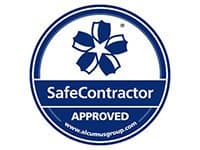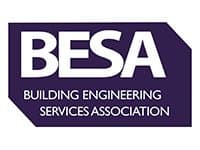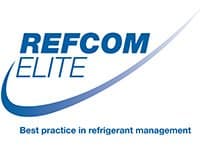The basic process of evaporative cooling has actually been in use for thousands of years, although modern technology has now allowed us to bring the idea right up-to-date. The underlying principle is that by passing warm air over a medium containing liquid water you can reduce the temperature of the air by taking heat energy from it and using it to evaporate the water.
Physical principles of evaporative heating
Evaporative cooling works by exploiting two different forms of heat energy known as ‘sensible heat’ and ‘latent heat’. Sensible heat refers to heat energy which can affect the temperature of the system containing it (in this case, air). Latent heat is heat energy stored in the system which does not affect the overall temperature of the system.
When the warm air in an evaporative cooling system passes over the system’s liquid water source, some of the heat energy contained in the air is transferred to the water. This causes it to evaporate and form water vapour. Some of the sensible heat from the air is therefore transformed into latent heat contained in the water vapour, causing the overall air temperature to drop.
How modern evaporative cooling works
Modern evaporative cooling systems usually consist of three basic parts – a fan, a membrane or pad which holds the liquid water and a pump to supply the water. The fan is used to draw warm air across the pad or membrane and then circulate it around the building being cooled. The water-carrying medium is sprayed with fresh water from the pump as needed to ensure the system does not dry out. This allows the evaporative cooling unit to work continually and efficiently over long periods.
Benefits of evaporative cooling
Evaporative cooling has several advantages over other types of cooling equipment.
Energy efficiency – The energy requires can be as much as 80% less that other methods of cooling, making evaporative systems both cheaper and more environmentally friendly.
Simplicity – The technology used for evaporative cooling is relatively simple with few complicated parts. This means there is less to go wrong, meaning these types of units are often cheaper to install, maintain and repair.
Dual-function – As well as cooling your air, an evaporative cooler can also help to humidify it. Other forms of air conditioning can leave air dry because they cause water vapour to condense out of it, so evaporative conditioning can be a good choice in drier climates.
Ultimately the type of air conditioning you need will depend on a variety of factors, including your local climate, type of building and operating requirements of your business. This is why it is always best to consult with an experienced air conditioning company that specialises in commercial work before making a decision.
Total Environmental Kooling are one of the UKs top specialists in commercial air conditioning offering installation, maintenance and repairs to businesses at all levels. To find out more or to book a consultation call TEK today on 0117 952 3355 or use our contact form for a swift response.






